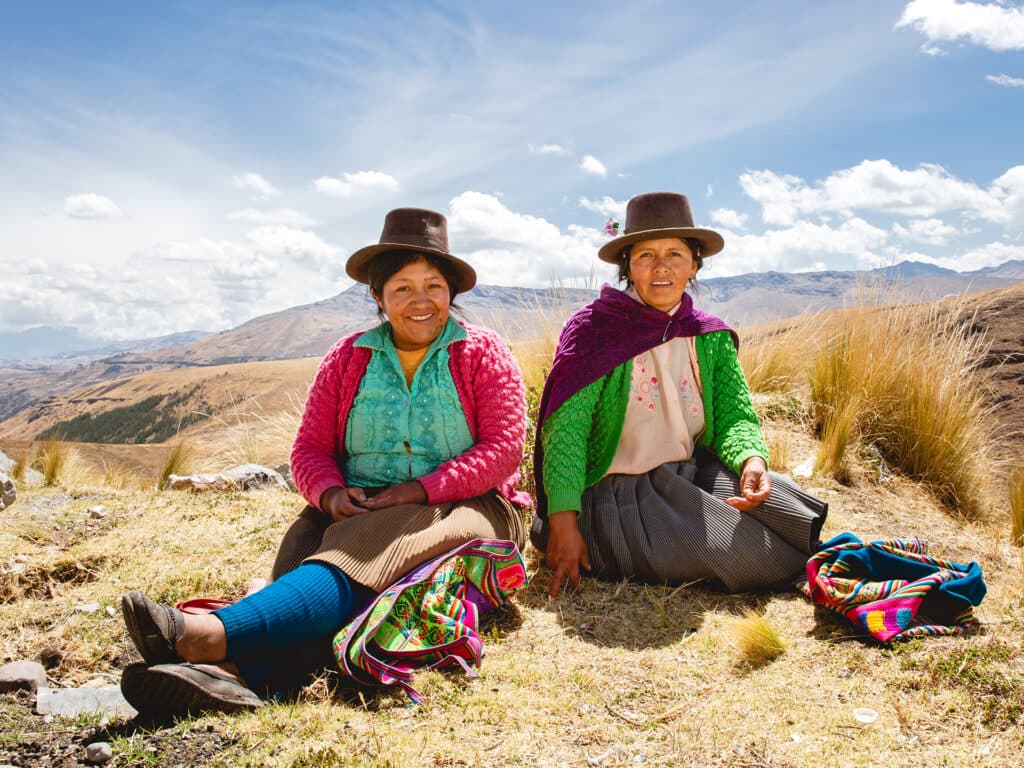
“We have to adapt”
"It's warmer now and the sun is burning stronger. Rainy periods are unreliable, it's becoming more difficult to grow things and there's hardly any water. But we're adapting as best we can by using new methods," says Margarita Huamaní, who lives in the village of Chaquicoccha, Peru.
It's morning and milking time. Margarita takes her bucket and puts the stool down beside the cow, with her little calf beside her. She pats it and talks to it soothingly. After a while the bucket is full, and Margarita walks up to the house. A few hours later she offers us freshly made cheese.
Margarita's husband, Eugenio Callahua, was born in Chaquicoccha.
"Living in town is not for me. I was born to live in the countryside, to farm the land," says Eugenio, showing his hands covered with soil from the morning's work.

New ways of working
The situation for farmers has been made more difficult. Climate change has forced them to adapt and look for new, intelligent solutions.
"Everything is more uncertain now, but we're finding new ways of working," Eugenio says.
Together with Margarita, he started planting trees to protect their crops from the frost, which is now becoming more erratic. After a while, they got in touch with Diakonia's partner organization Huñuq Mayu, who came up with ideas on how to save water and then channel it.
The organization also helped install water sprinklers to prevent the crops from dying when drought suddenly strikes.
"People in the village already had plenty of knowledge, but we've supported them by providing materials and equipment for more sustainable farming," says Alberto Chacchi Meneses, agricultural engineer at Huñuq Mayu.
More reliable crops
Improve the possibilities for growing crops and to adapt to new systems.
"We've made great strides in how we save our water and use it to grow organic vegetables," Eugenio says. "This makes our crops more reliable. Before, we never knew how much we would get. We were dependent on the whims of the weather."
Selling at market
Previously, the inhabitants of the village only grew crops to feed themselves. With the help of the water systems, their crops are now more reliable and they can therefore sell their products on the market.
"We now have 150 sorts of potatoes," Eugenio says proudly, cutting up a potato that is completely purple inside.

They have also received help in building greenhouses that protect the crops from the wind and rain.
“Everything we grow is organic. Many people use a lot of chemicals now that climate change is making crop growth less stable. They get bigger harvests like that, but I only use natural compost – it’s much better and more sustainable for everyone,” says Eugenio.

Diakonia in Latin America
Diakonia is present and have partner organizations in Bolivia, Colombia, Guatemala, Honduras, Nicaragua, Peru and Paraguay. The work is coordinated from our regional office in Bogotá, Colombia. Our partners represent a broad variety of organizations working on different matters and at different levels.